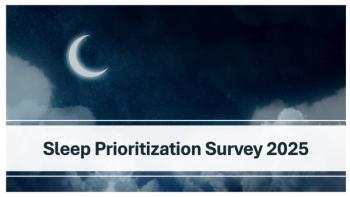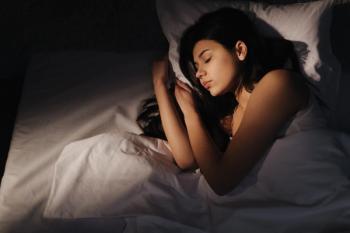
Sleep Health Through the Disparities Lens
The National Sleep Foundation published a position statement about disparities last year. Earlier this year, researchers reported findings showing that White patients with a diagnosis of insomnia are more likely to be prescribed an FDA-approved medication than Black patients.
The National Sleep Foundation put out a position statement last year. Meanwhile, researchers reported findings showing that White patients with a diagnosis of insomnia are more likely to be prescribed an FDA-approved medication than Black patients.
The National Sleep Foundation, like many healthcare organizations, put a fresh emphasis son equity issues after the murder of George Floyd in 2020 and as evidence that COVID-19 had a disproportionate effect on Black people. Early last year, the foundation published a
Some of the causes the statement include racial discrimination and evidence the experience of discrimination translates into poor sleep health; financial distress and the fact that a higher percentage of people deal with poverty and unemployment; neighborhood environment and higher levels of pollution, noise and other stressors in neighborhoods with a higher percentage of people from underserved groups; and access to healthcare and numerous studies that have shown that Black people are less likely to be diagnosed with sleep-related conditions such as sleep apnea despite evidence that evidence that they are more likely to be affected by such condition.
The foundation’s suggested changes for addressing some of the issues include developing culturally sensitive sleep resources; expanding access to healthcare by facilitating population-based management and telemedicine; and expanding adding funding to existing efforts to address healthcare disparities to include sleep health components.
Meanwhile, researchers are continuing to add to the evidence that the disparities exist.
For example, Emma Holler, M.P.H., an epidemiology Ph.D. candidate and graduate researcher at Indiana University, and her colleauges reported
Using the electronic medical record from the Indiana Network for Patient Care, a health information exchange that includes seven health system, they identified 12,326 patients who had new insomnia diagnosis, according to ICD-9 and ICD-10 coding, between 2011 and 2019. They narrowed that group down to 9,557 patients by excluding people who had been prescribed an insomnia medication before their diagnosis. Then they looked to see how many of those patients had been prescribed an FDA-approved insomnia medication, a group that includes but is not limited to Ambien (zolpidem), Belsomra (suvorexant), Butisol (butabarbital) and Sonata (zalepom).
Overall, only 12.4% (1,187 of 9,557) of the patients who received an insomnia diagnosis were prescribed an FDA-approved insomnia medication. But the percentage (6.2%) was even lower among Black patients, Holler and her colleagues reported and it was much lower the percentage (13.5%) among White patients.
The differences narrowed when other medications commonly used to treat insomnia but not explicitly FDA approved for that purpose were factored in. Those medications include doxepin, trazodone and melatonin. The results show that 28.9% of Black patients and 36.2%o of White patients received prescriptions when a more expansive definition of insomnia prescription was used.
“The results of this study suggest that there may be racial disparities in the pharmacologic treatment of insomnia even when key sociodemographic factors are controlled and healthcare access is guaranteed,” wrote Holler and her colleagues.
The results were reported in the Sleep Health in February.
Newsletter
Get the latest industry news, event updates, and more from Managed healthcare Executive.

























